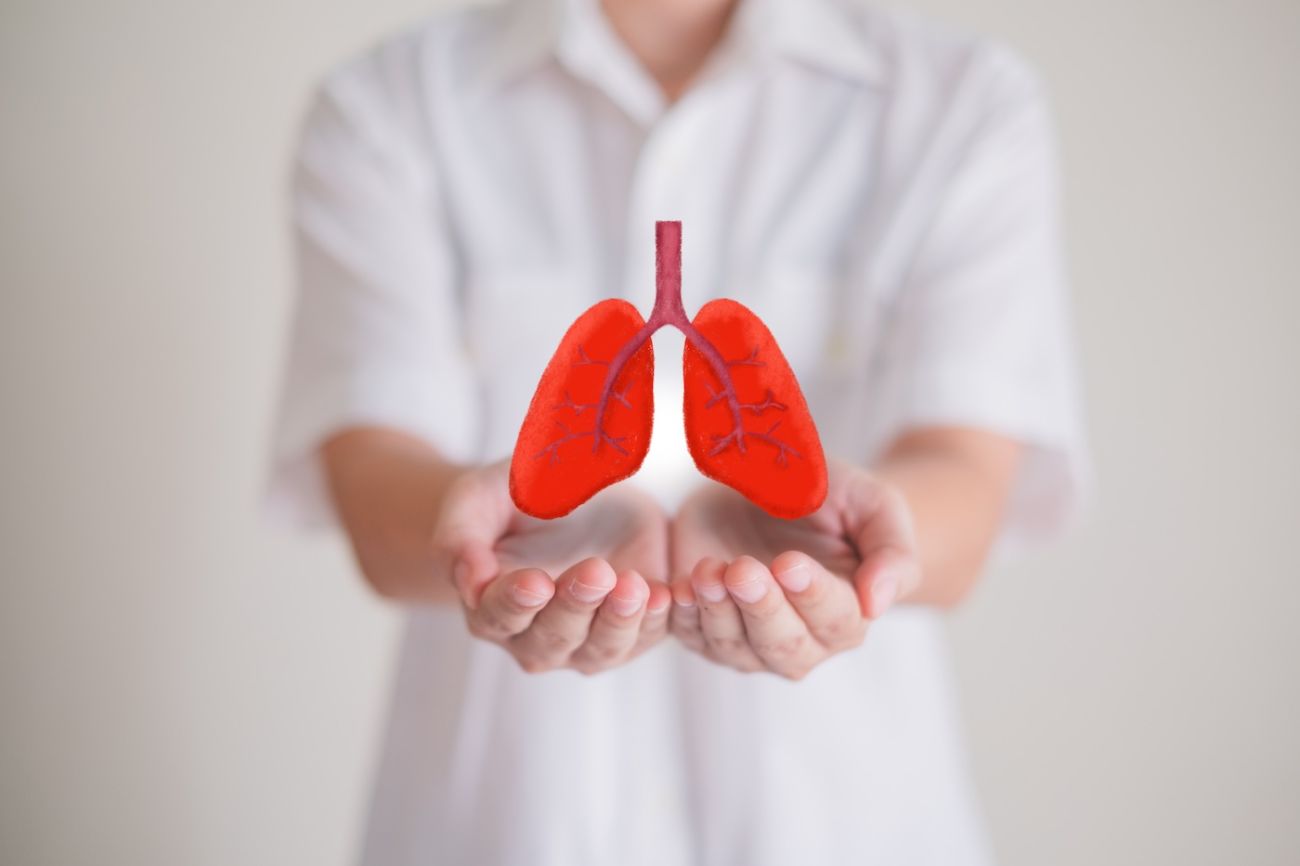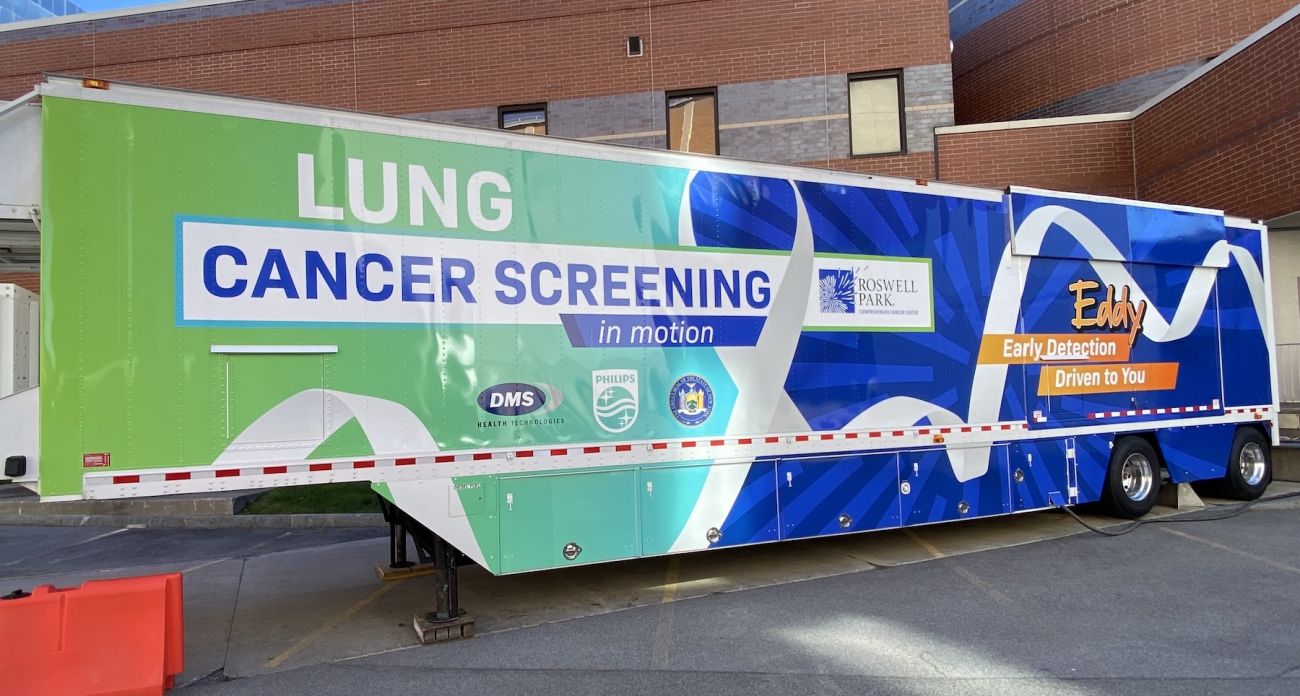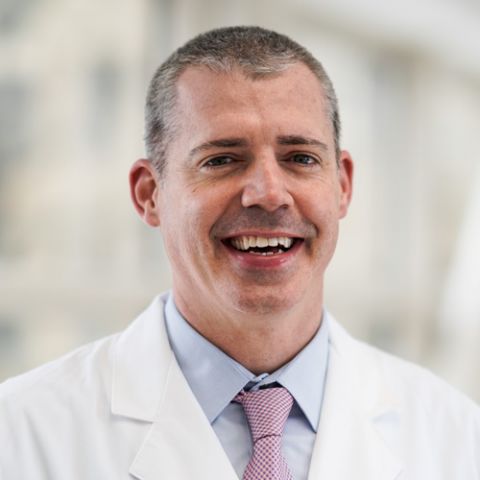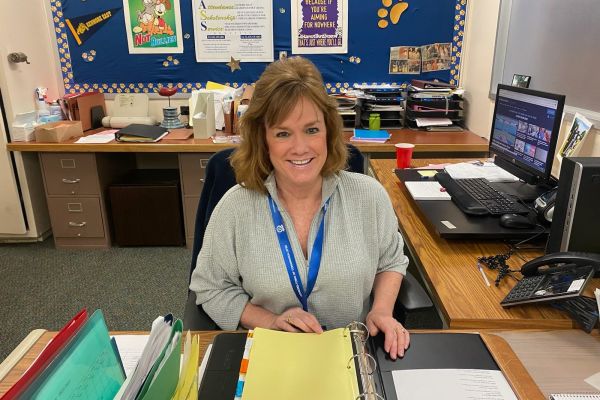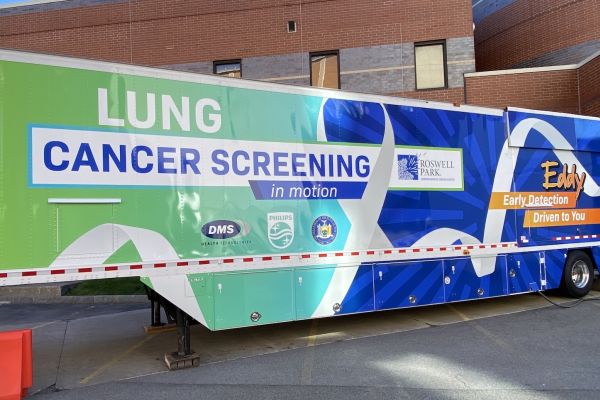This quick, easy and pain-free test detects early cancers long before any symptoms appear.
When Tina Morgan, age 63, learned she might have lung cancer, she was understandably anxious. A former half-pack-a-day smoker who started at age 14 and quit almost 40 years later, Tina already had lost both parents as well as two close friends to lung cancer. When her primary doctor recommended lung cancer screening, she readily agreed.
“Unfortunately, I learned from the experience of losing loved ones that by the time you have lung cancer symptoms, the cancer has typically progressed pretty far. I was very interested in doing the screening,” says Tina. When the computed tomography (CT) scan detected a spot on her right lung, she was asked to follow up with a positron emission tomography (PET) scan, which also detected a spot, but she wasn’t given a clear diagnosis. “I was referred to a local pulmonologist who ordered blood tests and a needle biopsy, but many weeks and then months were passing in between appointments. Given my knowledge of how quickly lung cancer can spread, I was frustrated by the delays and wanted answers in a more timely manner.”
Concerned, Tina asked for a referral to Roswell Park Comprehensive Cancer Center. Within a week she had an appointment with Roswell Park thoracic surgeon Mark Hennon, MD, FACS, Associate Professor of Oncology and Director of Thoracic Surgery Training Program. “Once I was connected with Roswell Park, I felt that someone was listening carefully and truly hearing me. I wasn’t just being shuffled around and everything started to move quickly,” she recalls. “I appreciated Dr. Hennon’s straightforward and kind manner. I finally felt like somebody was making me a priority and taking me seriously.”
Tina underwent a biopsy at Roswell Park and the pathology lab sent the results that there was cancer present while she was still on the surgical table. "We had already discussed surgical options, so I was prepared for Dr. Hennon to continue with surgery. Biopsies of lymph nodes around the lung were also performed and fortunately those were benign.”
Tina also felt grateful to have access to Roswell Park’s newest therapies, cancer treatment approaches and clinical trials. “Prior to my surgery, Dr. Hennon had explained that the standard surgery for lung cancer was to remove the entire lobe of the lung. On the day of my surgery, I learned that due to new study data, only a portion of the lobe would need to be removed, with the assurance that we would achieve the same results. I ended up losing less of my lung than I would have three weeks earlier.”
Why Roswell Park for lung cancer?
Roswell Park expertise helped Tina avoid an intense surgery and recovery. Our accomplished physicians can help you too.
Learn moreRoswell Park care closer to home
A resident of Jamestown, New York, Tina was able to have her follow-up visits at Jamestown Medical Oncology and Hematology, part of Roswell Park’s Care Network that offers patients throughout the region access to comprehensive cancer services and the expertise of world-renowned physicians.
“Tina’s lung cancer was caught early, at stage 1,” says Karen Pfentner, a nurse practitioner who works between Roswell Park’s Buffalo campus and the Jamestown community practice. “Following her surgery, we’ve continued her care at the Jamestown practice for routine CT scan surveillance as well as video visits that offer her the convenience of a follow-up appointment right from her home.”
Even though Tina had stopped smoking more than 10 years ago, she still fit the criteria for lung cancer screening. “If we are going to catch lung cancer early, it is typically through screenings,” says Pfentner, who notes that the majority of lung cancers are found by chance during preoperative chest X-rays or when someone has imaging for another reason, such as a car accident. “Lung cancer is one of the most deadly cancers, but early screening makes a huge difference. Statistically, 70-90% of patients who find lung cancer at the early stage are expected to live for at least five years following diagnosis.”
To proactively catch early-stage lung cancer, Roswell Park introduced mobile lung cancer screening with Early Detection Driven to You, or Eddy, to make lung cancer screening more convenient throughout WNY. The procedure is safe and easy, and involves a low-dose CT scan, which is like getting an X-ray but produces better quality images. It only takes a few minutes and the images reviewed by specialists at Roswell Park.
Who should have lung cancer screening?
Current and former smokers face the greatest risk and should have routine lung cancer screening if they have the following three factors:
- Age 50 to 79
- 20 pack/years of smoking history
- Smoked within the past 15 years
In addition, anyone with a history of cancer of the lung, esophagus, head or neck (excluding thyroid cancer) should also have routine screening.
Looking for Eddy near you?
Eddy eligibility forms are available online or call 1-800-ROSWELL for more information. If eligible, the team will reach out to set up a date and time when Eddy will be close to you. Check for upcoming locations and dates below.
Learn more about Eddy Complete the eligibility formFor Tina, being heard and being helped has been a life-changing experience. “You’ve got to be a strong advocate about your health. I was fortunate to have a doctor who was proactive and recommended lung cancer screening based on my smoking history. Both of my parents were former smokers, but no one ever suggested a screening for them. I would encourage all former smokers to ask their doctors about being screened, just in case. If my doctor hadn't made the recommendation, I would have gone along with cancer growing inside me until I had symptoms, at which point it might have been too late.
“We all know we're not going to be here forever. But when you are looking your mortality in the face, it changes a lot about what's really important and what is not. Being supported when I needed help reminded me to live my life as proudly and authentically as I possibly can, because you can't take it for granted.”
Editor’s Note: Cancer patient outcomes and experiences may vary, even for those with the same type of cancer. An individual patient’s story should not be used as a prediction of how another patient will respond to treatment. Roswell Park is transparent about the survival rates of our patients as compared to national standards, and provides this information, when available, within the cancer type sections of this website.
